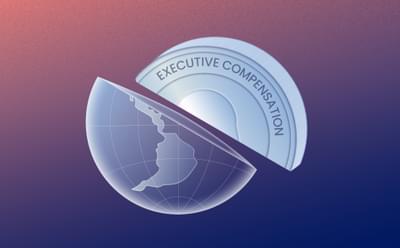
Given the exponential rise in demand for sustainability-related information, there has been a proliferation of both research- and questionnaire-based ESG ratings. These ratings constitute a distinct type of ESG data being used by market participants in capital allocation decisions. Unchecked, the demands on a company’s sustainability reporting staff can become a daunting and resource-depleting exercise. Furthermore, a relentless internal focus on improving ESG scores can leave corporates in a ‘tail wagging the dog’ situation when it comes to moving the needle on sustainability strategy.
ESG ratings, questionnaires, and research - are they all the same?
Not all ratings use questionnaires, but all questionnaires lead to a rating. An ESG questionnaire is a survey administered by a third-party to solicit company responses with the goal of assessing its overall sustainability performance through an ESG rating or score based on proprietary methodologies. They can be considered a special form of reporting and are voluntary, although peer pressure makes it sometimes difficult to say no. The two most popular questionnaire-based ratings are CDP and S&P Global, but there are others (UN Global Compact Communication on Progress, EcoVadis, B-Corp).
ESG research reports are created by research firms, also based on proprietary methodologies. While they may use company data and disclosures in the process of assessing a company’s environmental, social, and governance practices, they rely only on publicly available information. The most popular research-based ratings are those of MSCI, Sustainalytics, and Moody’s (formerly Vigeo Eiris).
Where is the ‘unsubscribe’ button?
Contrary to popular belief, you don’t get to choose your rating agencies. They choose you. And they work nothing like credit rating agencies. You may not even realize that your company has been rated by a third-party until you get a question from an investor about your score.
Where should you focus your time?
To choose which rating schemes to focus on, consider those most widely used by investors, index providers, and large companies managing their supply chains. When the opportunity arises, ask your shareholders which ones they use and how they use them in their analysis. The best way to apprehend ESG questionnaires and reports is to use them as a learning tool, especially to see what issues and related disclosures they’re focusing on and whether these are – or should be – relevant to your company. In addition, the more robust ratings are increasingly focusing on assessing performance, rather than just disclosures, providing a sense of what stakeholders expect ‘good’ performance to look like.
If you choose not to answer an ESG questionnaire, it is worth spending the time to understand the key topics assessed and methodology being used so that you can explain to investors why you’ve opted not to participate. When it comes to research reports that kick out a score without your input, it’s even more important to get a handle on what is being assessed, and how. Although proprietary methodologies tend to lack transparency, you can get a sense from reading the research report for your company, and when possible, those for your peers.
While you can’t opt out of being scored by third-party ESG research firms, you can still control your narrative. You may disagree with a rater’s assessment of your exposure to a particular ESG risk and decide that the measures required to sufficiently boost your performance are not a good use of your sustainability resources, or that they are not aligned with your strategy. Armed with that knowledge, you can speak confidently—and proactively— to investors relying on that rating about the rationale to spend your energy elsewhere and why you are likely to lag on that measure.
What about investor ESG surveys?
Just when you’ve finally got a handle on all the third-party ESG questionnaires and research firms, your inbox pings with a custom ESG survey from an institutional investor. It may not seem like it, but this is a gift. Reviewing an investor survey on ESG issues can provide tremendous insight into how that firm is integrating ESG considerations into its investment decisions, and it offers an opening to engage in dialogue about this. If you decide to respond, be certain that no responses contain non-public information that could be considered selective disclosure. You can also request a follow-up discussion to better understand their expectations relative to the questions they’re asking. You’ll be surprised how willing investors are to engage and discuss these issues with you.
If it’s not public, keep it private
The vast majority of ESG scores rely on publicly available information. Therefore, the best way to improve your company’s ESG ratings is to improve your corporate sustainability disclosures. Nevertheless, some questionnaires allow - and in some cases encourage - companies to provide non-public information, so it’s important to understand how this information will be used and possibly shared with the rating agency’s clients. If you believe the information requested by a questionnaire is material to your business, consider making it a public disclosure; otherwise, perhaps it’s better to leave that question blank. After all, the premise of full and fair disclosure in capital markets is that you disclose the same information to everyone, at the same time.
Nothing replaces quality corporate disclosures
ESG ratings will remain part of the sustainability reporting and finance landscape for the foreseeable future. Well understood and leveraged wisely, they do provide companies with valuable insights on areas for improving either their disclosures or their management of material ESG issues. In the end, ESG ratings will never replace need for comparable (standardized), reliable (audited), and timely corporate sustainability disclosures.

